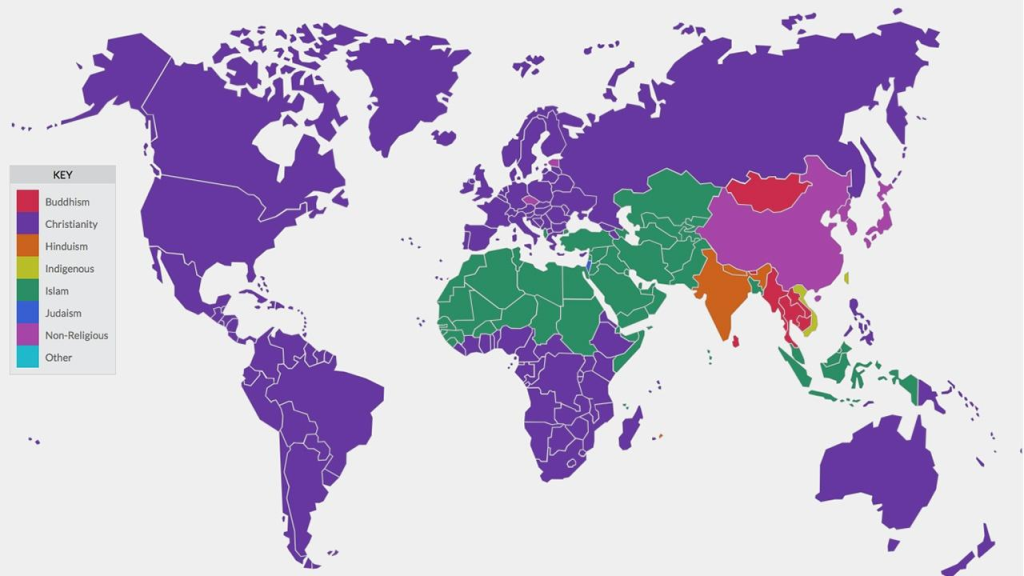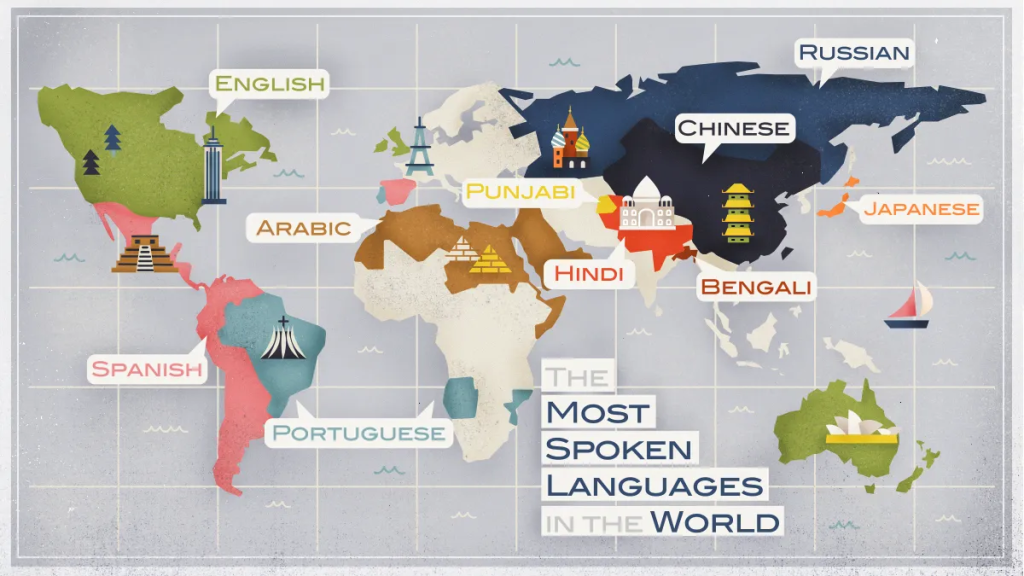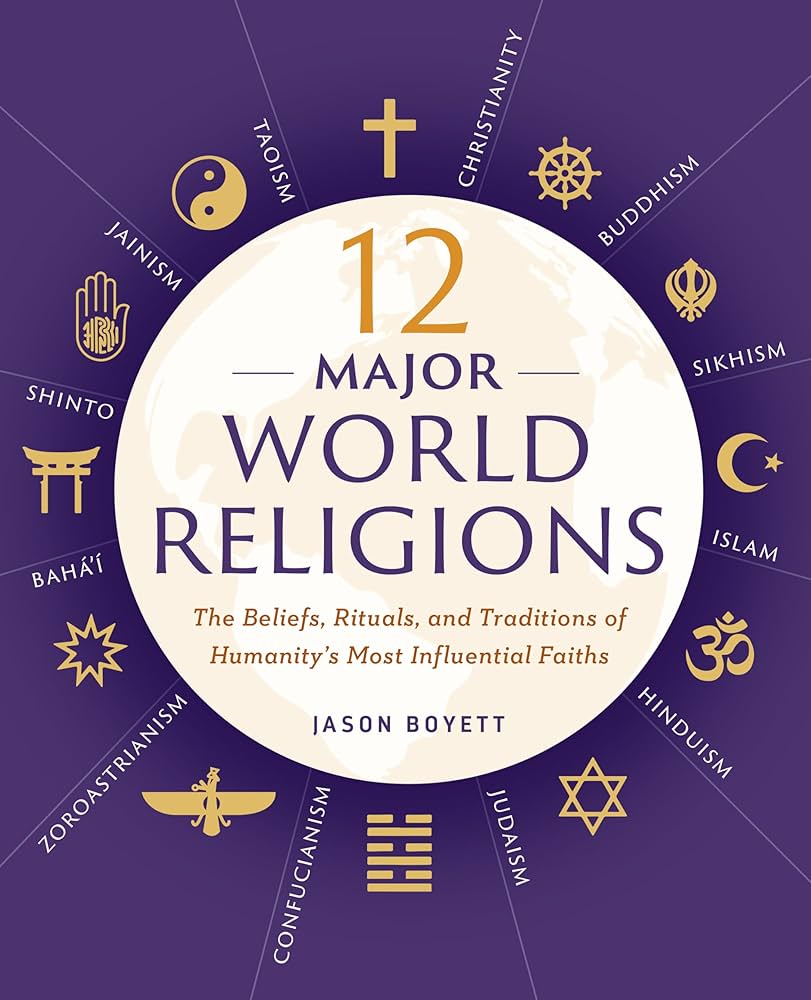Table of Contents
The history of humanity is deeply intertwined with the evolution of major world religions. From ancient polytheistic practices to the monotheistic beliefs that dominate today, religions have shaped societies, influenced cultures, and provided moral and ethical frameworks for billions of people. The development of major world religions—such as Hinduism, Buddhism, Judaism, Christianity, and Islam—reflects the changing needs and values of the societies in which they emerged, while their cultural impact continues to resonate globally. This article explores the evolution of these religions and their profound influence on culture.

The Origins and Evolution of Major World Religions
1. Hinduism: The Oldest Living Religion
Hinduism is considered one of the oldest religions in the world, with roots tracing back over 4,000 years to the Indus Valley civilization. Unlike other major religions, Hinduism has no single founder or central text. Instead, it evolved through the integration of various cultural and religious practices, including the Vedic traditions of ancient India.
Hinduism’s core beliefs include the concepts of karma (the law of cause and effect), dharma (duty, righteousness), and moksha (liberation from the cycle of rebirth). These ideas have profoundly shaped Indian culture, influencing everything from social structure and art to daily rituals and festivals. The caste system, which emerged from Hindu beliefs, structured Indian society for centuries, while Hindu epics like the Mahabharata and Ramayana continue to inspire literature, theater, and cinema.
2. Buddhism: A Path to Enlightenment
Buddhism emerged in the 6th century BCE as a reform movement within Hinduism. Founded by Siddhartha Gautama, who later became known as the Buddha, Buddhism offered an alternative path to spiritual enlightenment, emphasizing the Four Noble Truths and the Eightfold Path as the means to overcome suffering and achieve Nirvana.
Buddhism spread rapidly across Asia, influencing cultures from India to China, Japan, and Southeast Asia. Its impact on art, architecture, and philosophy is evident in the creation of iconic symbols such as the Buddha statue, stupas, and Zen gardens. The Buddhist emphasis on meditation and mindfulness has also resonated with modern Western cultures, contributing to the global popularity of these practices.
3. Judaism: The Foundation of Monotheism
Judaism, one of the oldest monotheistic religions, traces its origins to the covenant made between God and Abraham, around 2000 BCE. The teachings of Judaism, encapsulated in the Torah, emphasize the worship of one God, ethical conduct, and the importance of community and family life.
Judaism has had a profound impact on Western culture, particularly through its role as the foundation for Christianity and Islam. Jewish religious practices, such as the observance of the Sabbath and dietary laws (kosher), have shaped cultural norms within Jewish communities. Moreover, Jewish contributions to philosophy, science, literature, and politics have significantly influenced global intellectual and cultural development.
4. Christianity: A Global Faith
Christianity began in the 1st century CE as a small Jewish sect following the teachings of Jesus of Nazareth, whom Christians believe to be the Messiah prophesied in the Hebrew Bible. The religion spread rapidly across the Roman Empire and beyond, eventually becoming the dominant religion in Europe and later, through colonization and missionary work, across the Americas, Africa, and Asia.
The cultural impact of Christianity is vast, shaping Western civilization in profound ways. Christian teachings have influenced laws, ethics, art, literature, and education. The Christian church played a central role in the development of Western music, from Gregorian chants to classical compositions by Bach and Handel. Christian themes have also been a major influence on Western literature and visual arts, inspiring works such as Dante’s Divine Comedy and Michelangelo’s Sistine Chapel ceiling.
5. Islam: A Unifying Force
Islam, founded in the 7th century CE by the Prophet Muhammad in the Arabian Peninsula, quickly grew to become one of the world’s major religions. Islam’s core teachings, as outlined in the Quran, emphasize the oneness of God (Allah), the importance of following the Five Pillars, and the pursuit of social justice.
Islamic culture flourished during the Golden Age of Islam (8th to 14th centuries), a period of significant advancements in science, medicine, mathematics, and philosophy. Islamic art and architecture, characterized by intricate geometric patterns, calligraphy, and grand structures like mosques, have left a lasting mark on the world. The spread of Islam across the Middle East, North Africa, and into Asia and Europe created a rich cultural exchange that continues to influence global culture today.
The Cultural Impact of Major World Religions
1. Art and Architecture
Religious beliefs have been a powerful source of inspiration for art and architecture throughout history. The grand cathedrals of Europe, the intricate temples of India, the serene Buddha statues of East Asia, and the majestic mosques of the Islamic world all reflect the deep connection between religion and cultural expression. These structures are not only places of worship but also symbols of cultural identity and historical continuity.
2. Law and Ethics
Religious teachings have played a crucial role in the development of legal systems and ethical frameworks. The Ten Commandments of Judaism and Christianity, the Sharia law of Islam, and the Dharma of Hinduism and Buddhism have all shaped the moral codes and legal principles of various societies. These religious laws have influenced everything from family life and social justice to human rights and governance.

3. Festivals and Rituals
Religious festivals and rituals are central to cultural life, bringing communities together to celebrate shared beliefs and traditions. Christmas and Easter in Christianity, Ramadan and Eid in Islam, Diwali in Hinduism, and Hanukkah in Judaism are just a few examples of how religious observances are woven into the fabric of cultural life, fostering a sense of belonging and continuity.
4. Language and Literature
Religious texts have been foundational to the development of languages and literary traditions. The Bible, the Quran, the Vedas, and the Buddhist scriptures are not only religious texts but also literary masterpieces that have influenced language, poetry, and storytelling across cultures. The translation and study of these texts have led to the preservation and dissemination of knowledge, shaping the intellectual heritage of humanity.

Conclusion
The evolution of major world religions has had a profound impact on culture, shaping art, law, ethics, language, and social practices across the globe. These religions have provided meaning, purpose, and community for billions of people, influencing the course of history and the development of civilizations. As we continue to navigate a globalized world, understanding the cultural significance of these religions is essential for fostering mutual respect, tolerance, and cooperation among diverse communities.


